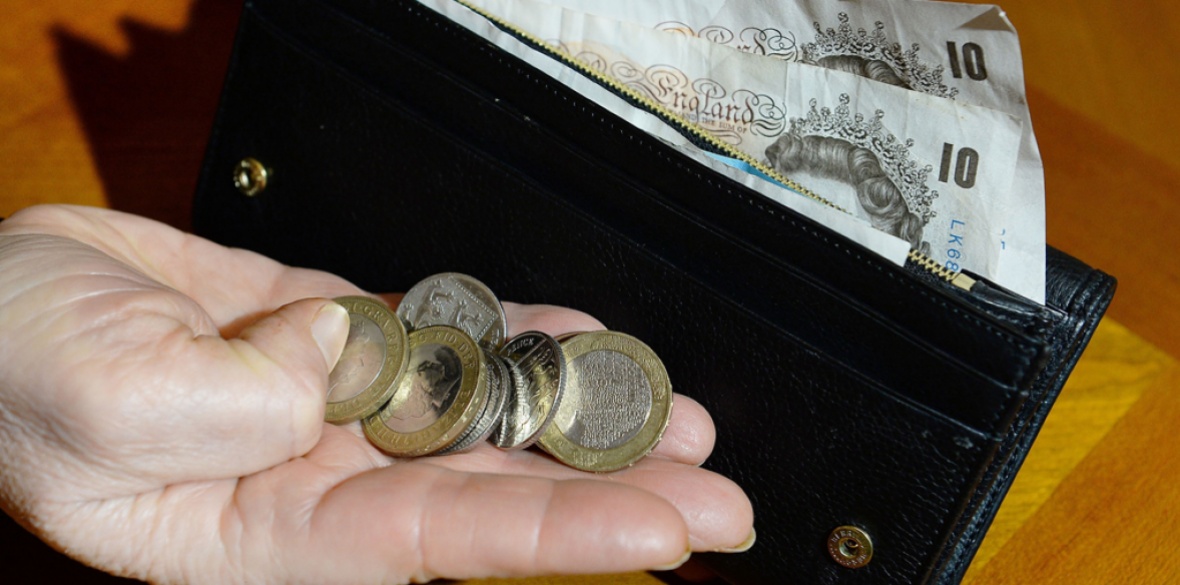This is the last article you can read this month
You can read more article this month
You can read more articles this month
Sorry your limit is up for this month
Reset on:
Please help support the Morning Star by subscribing here
FURLOUGH ends today for one million people. So also does the £20 weekly uplift in benefits. What does the government promise in return?
Yesterday it announced a grant of £500 million to local councils to help with urgent “hardship” cases over the winter. That represents about £1 a week for each of the 20 million individuals currently on benefits for the whole six months till next March.
Will there be hardship? Yes, there will. From today every household will face a 10 per cent increase in energy costs. That’s £2 a week gone already. Retail price inflation is at 5 per cent and is likely to go considerably higher, with global wholesale prices for food stocks trebling over the past year.
The Chancellor described this new “household support fund” as providing a “lifeline for those at risk of struggling to keep up with the bills over the winter.” The Chancellor must know it is derisory.
There are probably two reasons for the government’s actions. Both are a challenge to the trade union and labour movement.
The first is the belief that the economic whip is now needed to get people back to work. Labour shortages are forcing up wages. Basic services cannot be delivered. Exports are threatened.
There is, however, a very good reason for people not returning to their old jobs. For many it is not safe: the pandemic continues and sases are rising — up 11 per cent last week, with Britain’s 36,000 cases a tenth of the world total.
In these conditions many workers will, despite vaccination, be vulnerable because of underlying health conditions.
Obesity alone affects a third of older workers. We suffer the long-term consequences of poverty and underfunded health services — and most unfilled posts are in the front line.
Trade unionists are therefore correct to stand firm. The government’s use of the economic whip in these circumstances is irresponsible and dangerous.
The second reason is, however, more fundamental. The government has run out of money. It has spent £400 billion on Covid — much of it unwisely and much of it because of its prior privatisation of social care and failure to invest in the NHS.
As a result, government debt is now unprecedented. Only in wartime has it been higher.
Yet the government needs sterling to be strong to defend the City of London and sustain sterling as a world banking currency — at just the point when the wider economic environment is starting to change.
Globally, the level of corporate debt stands at double the level before the 2009 crisis. Commercial interest rates are now rising in parallel with the jump in inflation and defaults are beginning.
Central bankers are terrified. They know printing money is causing the problem — but just mentioning it would trigger panic. And sterling is vulnerable. This is the government’s dilemma.
This is why it is using the economic whip to force people back to work and trying to run the economy at full speed despite a continuing pandemic.
It is also why the trade union movement must continue to engage with politics with a “big P.” Starmer’s speech on Wednesday was totally bereft of any understanding of the nature of capitalism. He did not even use the word.
Nor did he use the word “class” to denote the contradictory interests of those who don’t own capital and those who do — today, effectively, the 0.1 per cent who control the great bulk of the world’s investible wealth and who have massively increased it by exploiting easy money during the pandemic.
Jeremy Corbyn did use those terms. He talked about socialism and returned the Labour Party to its original objectives. If our rulers are to be called to heel, they must again be faced by such a party.











